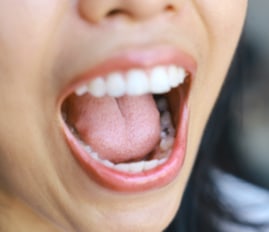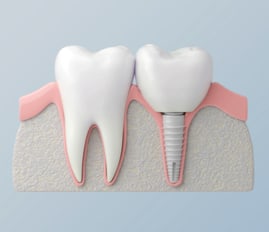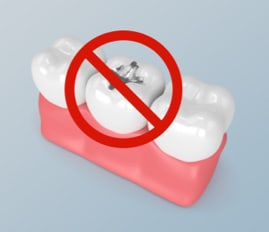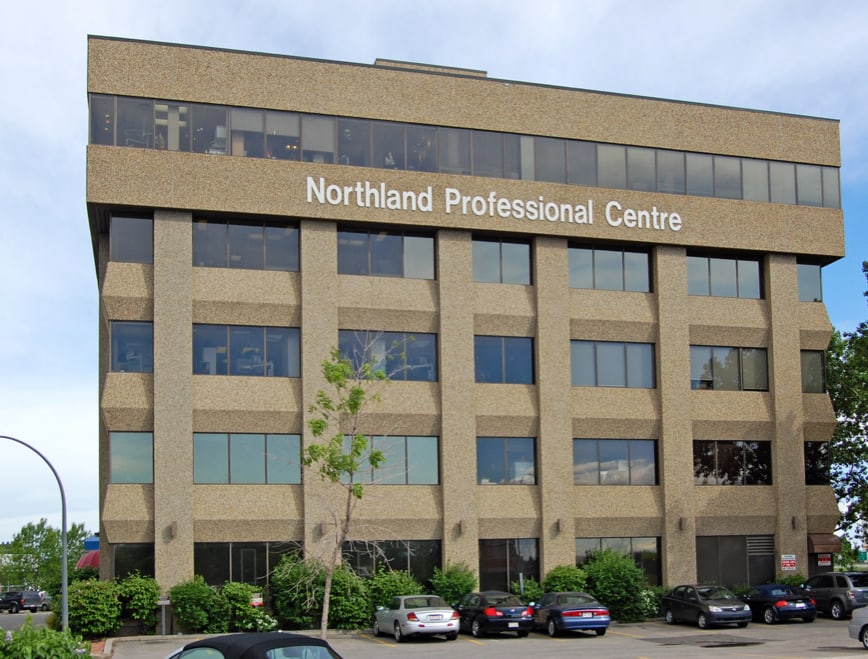We’re seeing a gradual shift towards approaching your health through a holistic lens, which includes incorporating more natural products to promote good health.
However, it’s important to recognize that just because something is natural, doesn’t necessarily mean it’s always good for us.
Many people are becoming conscious about the role of fluoride, a naturally occurring mineral, in the realm of dental care. While it can help strengthen tooth enamel, it’s not without risks.
High levels of fluoride can lead to adverse health effects over time, which is why it’s okay to opt out of fluoride treatments at your dentist.
Fluoride in Dental Care: Toothpaste and More
Fluoride is a naturally occurring mineral found in water, soil, and some foods, and has been used in dental care for years via treatments and products such as toothpaste.
The primary reason why fluoride has been so frequently implemented in dental care is of how it aids in the remineralization process, helping to repair the early stages of tooth decay before it becomes a cavity. However, new research suggests its efficacy has decreased substantially to almost nothing.
Yet, this benefit of fluoride is one of the reasons why many cities across Canada fluoridate their drinking water, hoping low levels will improve dental health for populations.
In Calgary, the topic of water fluoridation has been contentious. While there are low levels of fluoride naturally occurring in our water, the city stopped adding fluoride to its water supply in 2011 after much debate.
Despite the supposed benefit, it’s important to understand that fluoride use isn’t without risks and isn’t always a black-and-white issue. It’s important to recognize the potential concerns associated with fluoride, particularly in large quantities.
Is Fluoride Good for Teeth?
Fluoride is often added to toothpaste, mouthwash, community water supplies, and is used in dental care because it helps strengthen tooth enamel and can reverse early signs of tooth decay. This mineral works by remineralizing weak spots in the enamel, making teeth more resistant to cavities.
However, some recent research and holistic dental experts have questioned its long-term safety, especially with overexposure. Potential risks can include dental fluorosis in children and other health concerns in sensitive individuals. For some, the risks outweigh the benefits—especially when good oral hygiene and fluoride-free alternatives are available.
At Health First Dental, we believe it’s important to weigh both the potential benefits and risks of fluoride. For those who prefer a natural approach, there are effective ways to keep your teeth strong and healthy without fluoride. We’re here to support your choices and provide personalized guidance for your oral health.
Risks of Fluoride
One of the primary concerns related to fluoride intake is dental fluorosis, a condition that primarily affects children under the age of eight. This occurs from excessive fluoride consumption during childhood when the teeth are still developing under the gums.
Symptoms of this condition generally include:
- Teeth discolouration
- Enamel damage
- Increased susceptibility to cavities
In addition, impacts on cognitive development in children due to fluoride and water fluoridation are a big concern, and “safe” levels of fluoride have been attributed to reduced IQ and other neurological impacts in children.
Our general health is also important to consider.
While much of the concern focuses on children developing dental fluorosis, adults aren’t exempt from potential adverse effects. Some studies suggest that high levels of fluoride also have damaging effects on bone health, like brittle bone or skeletal fluorosis.
While the majority of cases are reported from areas with naturally high fluoride levels in water and long-term consumption, this highlights why there’s an ongoing back-and-forth about whether the benefits of fluoride are worth the risk.
Benefits of Fluoride-free Dental Cleanings
Many professionals continue to use fluoride in their practice. It’s generally administered towards the end of a dental cleaning, but more patients are opting to skip them due to concerns about fluoride.
Choosing to go fluoride-free in your oral health journey and dental cleanings can have numerous benefits.
The primary benefit is that it minimizes the risk of dental fluorosis in young children, especially while many continue to receive fluoride from dental products like toothpaste, mouthwash, and certain foods.
Some people may be sensitive to fluoride and find relief in avoiding it altogether, allowing a more comfortable dental experience. Those with specific health conditions, like thyroid disorders, are cautious about fluoride’s potential impacts.
Going fluoride-free presents an opportunity to have a holistic approach to dental care. This means focusing on preventative measures, like diet, oral hygiene, and regular dental exams to maintain and improve oral care.
This approach can lead to a more comprehensive understanding of oral health, contributing to a healthier lifestyle overall.
How to Say No to Fluoride at the Dentist: A Step-by-Step Guide
Want to skip fluoride at your next dental visit? Here’s a simple guide to help you confidently advocate for your preferences:
- 1. Understand Your Reason: Before your appointment, understand why you want to avoid fluoride. Whether it’s for personal health beliefs, sensitivities, or a holistic lifestyle, knowing your reason will help you communicate clearly.
- 2. Let Your Dental Clinic Know in Advance (Optional): When booking your dental exam, you can mention that you prefer fluoride-free care. Most offices appreciate knowing your preferences ahead of time and can make a note in your patient file.
- 3. Remind Your Dental Hygienist or Dentist at the Start: At the beginning of your appointment, kindly remind your dental team that you’d like to decline any fluoride treatments or products during your exam/cleaning.
- 4. Stand Firm, But Friendly: If your dental team recommends fluoride, you can politely restate your preference. You don’t need to justify your decision, but if asked, you can simply say it’s a personal choice.
- 5. Ask About Alternatives: If you’re interested, ask your dental team about fluoride-free alternatives.
- 6. Confirm Your Choice at Checkout: Before leaving the clinic, you can ask the front desk to add a note on your file, so your preference is remembered for future visits.
It’s your right to choose the care that fits your needs. Most dental professionals respect your decisions, especially when you communicate them calmly and confidently.
That being said, if you’re looking for a dentist who supports fluoride-free care, contact Health First Dental in Calgary. Our team respects your choices and is happy to provide holistic, fluoride-free dental services. No pressure, just personalized care on your terms.
Maintaining Good Oral Hygiene Without Fluoride
It’s absolutely possible to maintain great oral hygiene and care without using fluoride treatments or products. The key is staying consistent in your commitment to oral care.
Brushing your teeth twice a day and flossing once a day is a great way to start. Never underestimate the benefits of flossing which helps clean areas between teeth and below the gumline that a toothbrush can’t reach. Finish using a fluoride-free mouthwash to reduce bacteria and freshen your breath.
Focusing on dietary choices can also play a significant role in approaching your oral health through a holistic lens. Limiting sugary and acidic foods can prevent tooth decay and erosion. Drinking plenty of water, especially after meals, helps wash away food particles.
Visiting your dentist for a routine dental exam and cleaning every six months plays a huge role in preventative dental care. Regular visits help monitor oral health and detect concerns early, allowing for timely treatment and reducing the risk of complications.
Alternatives to Fluoride
Receiving the supposed benefits of fluoride can be done with safe, healthy, and natural alternative methods. Take the time to explore some of these options to see what works well for your oral health and personal preference.
One such alternative is xylitol, a natural sugar alcohol found in many fruits and vegetables. Unlike sugar, xylitol doesn’t produce acids that erode tooth enamel.
It’s often used in sugar-free gums and dental products because it can reduce the growth of harmful bacteria in the mouth, lowering the risk of cavities.
Another option is hydroxyapatite, a naturally occurring mineral that makes up the majority of human tooth enamel and bone. Products containing hydroxyapatite can help remineralize tooth surfaces, similarly to fluoride, by supplying the minerals needed to repair and strengthen enamel.
Oil pulling, an ancient practice involving swishing oil (typically coconut or sesame) in the mouth, is also gaining popularity. This method is believed to help reduce oral bacteria and plaque, promoting healthier gums and teeth.
Lastly, maintaining a diet rich in calcium and vitamin D is crucial for strong teeth, as these nutrients support enamel health and bone density.
Together, these fluoride alternatives can help preserve and improve oral health by naturally preventing decay and supporting tooth integrity.
Key Takeaways
- You have options: Saying no to fluoride at the dentist is your choice, and many dental teams (especially holistic practices) will respect your preferences.
- Understand the facts: While fluoride can protect teeth, excessive exposure may carry health risks, particularly for children and individuals with sensitivities.
- Local insight matters: Calgary’s water does not currently have added fluoride, making it easier for residents to limit overall fluoride exposure. However this is set to change, as the city plans to reintroduce fluoride in the city’s drinking water in 2025.
- Effective alternatives exist: Fluoride-free options like xylitol and hydroxyapatite can help you maintain strong, healthy teeth without compromise.
- Speak up about your needs: Communicate your fluoride preferences with your dental clinic to ensure your dental care aligns with your values.
- Holistic dental care supports your health: Prioritizing a balanced diet, good oral hygiene, and regular dental visits can keep your smile healthy and natural.
Schedule a Visit to Your Holistic Dentist in Calgary
Understanding the history and ongoing discussions around fluoride, the benefits of fluoride-free cleanings, and healthy alternatives, can help you make informed decisions that align with your health goals.
Connect with our team at Health First Dental to schedule your routine dental cleaning and exam.












